Year 6
The English curriculum is built around the three interrelated strands of language, literature and literacy. Teaching and learning programs should balance and integrate all three strands. Together, the strands focus on developing students' knowledge, understanding and skills in listening, reading, viewing, speaking, writing and creating. Learning in English builds on concepts, skills and processes developed in earlier years, and teachers will revisit and strengthen these as needed.
In Years 5 and 6, students communicate with peers and teachers from other classes and schools, community members, and individuals and groups, in a range of face-to-face and online/virtual environments.
Students engage with a variety of texts for enjoyment. They listen to, read, view, interpret and evaluate spoken, written and multimodal texts in which the primary purpose is aesthetic, as well as texts designed to inform and persuade. These include various types of media texts including newspapers, film and digital texts, junior and early adolescent novels, poetry, non-fiction and dramatic performances. Students develop their understanding of how texts, including media texts, are influenced by context, purpose and audience.
The range of literary texts for Foundation to Year 10 comprises Australian literature, including the oral narrative traditions of Aboriginal and Torres Strait Islander Peoples, as well as the contemporary literature of these two cultural groups, and classic and contemporary world literature, including texts from and about Asia.
Literary texts that support and extend students in Years 5 and 6 as independent readers describe complex sequences, a range of non-stereotypical characters and elaborated events including flashbacks and shifts in time. These texts explore themes of interpersonal relationships and ethical dilemmas within real-world and fantasy settings. Informative texts supply technical and content information about a wide range of topics of interest as well as topics being studied in other areas of the curriculum. Text structures include chapters, headings and subheadings, tables of contents, indexes and glossaries. Language features include complex sentences, unfamiliar technical vocabulary, figurative language, and information presented in various types of graphics.
Students create a range of imaginative, informative and persuasive types of texts such as narratives, procedures, performances, reports, reviews, explanations and discussions.
(source: www.australiancurriculum.edu.au)
Achievement Standard
Receptive modes (listening, reading and viewing)
By the end of Year 6, students understand how the use of text structures can achieve particular effects. They analyse and explain how language features, images and vocabulary are used by different authors to represent ideas, characters and events.
Students compare and analyse information in different and complex texts, explaining literal and implied meaning. They select and use evidence from a text to explain their response to it. They listen to discussions, clarifying content and challenging others' ideas.
Productive modes (speaking, writing and creating)
Students understand how language features and language patterns can be used for emphasis. They show how specific details can be used to support a point of view. They explain how their choices of language features and images are used.
Students create detailed texts elaborating on key ideas for a range of purposes and audiences. They make presentations and contribute actively to class and group discussions, using a variety of strategies for effect. They demonstrate an understanding of grammar, and make considered vocabulary choices to enhance cohesion and structure in their writing. They use accurate spelling and punctuation for clarity and make and explain editorial choices based on criteria.
(source: www.australiancurriculum.edu.au)
- Plus Plan
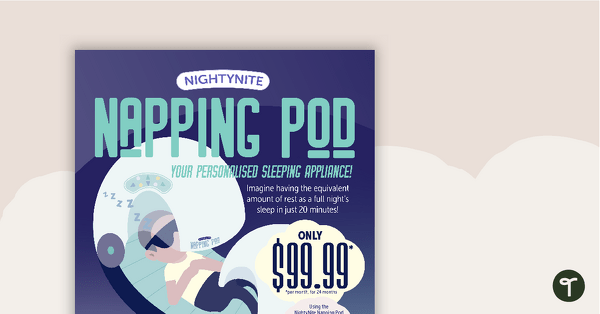
NightyNite Napping Pod – Worksheet
A comprehension worksheet for a fake advertisement from the Year 6 magazine (Issue 3).
- Plus Plan
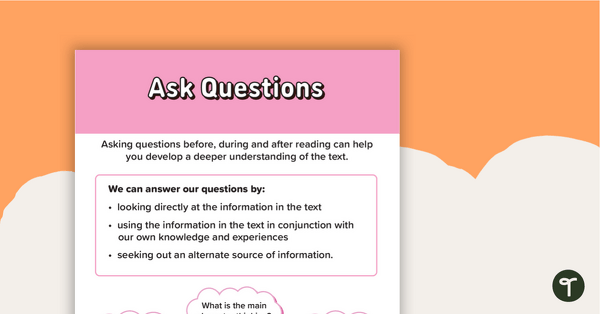
Ask Questions Poster
A poster highlighting how to ask questions when reading a piece of text.
- Plus Plan
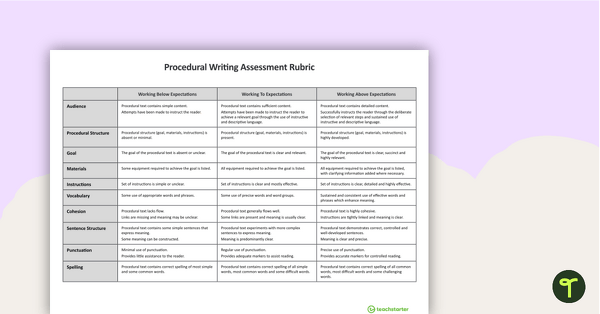
NAPLAN-Style Assessment Rubric - Procedural Writing
A NAPLAN-style rubric designed to help teachers to assess students' procedural writing.
- Plus Plan
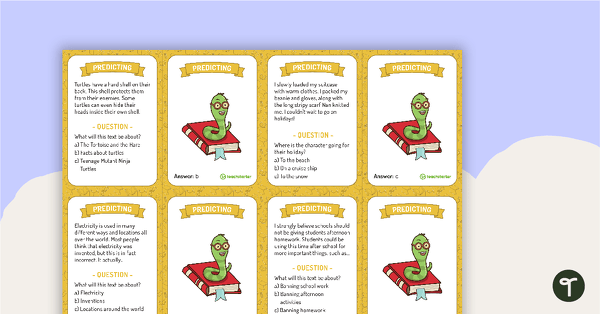
Out of the Book - Comprehension Board Game
A fun comprehension strategy board game for students to play during literacy rotations.
- Free Plan
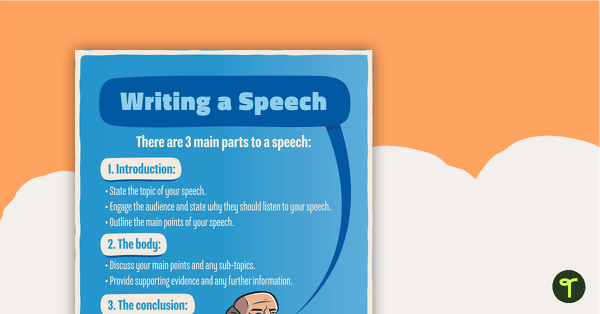
Writing a Speech Poster
A poster highlighting the main parts to a speech.
- Plus Plan
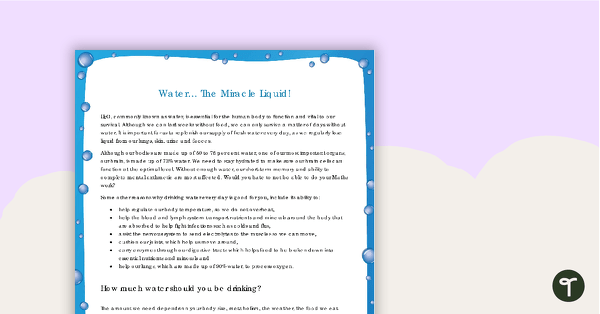
Comprehension – Why Our Bodies Need Water
A comprehension activity about 'Why Our Bodies Need Water'.
- Plus Plan
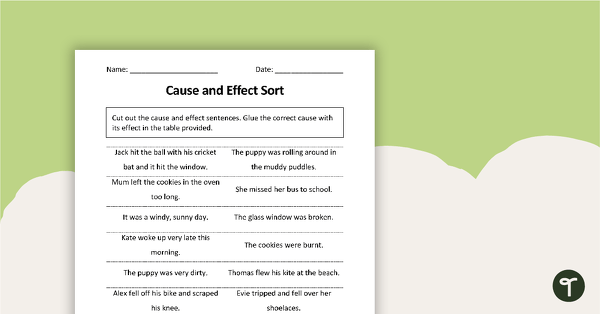
Cause and Effect - Sentence Sort Worksheet
A worksheet and answer sheet to use when teaching students the cause and effect comprehension strategy.
- Plus Plan
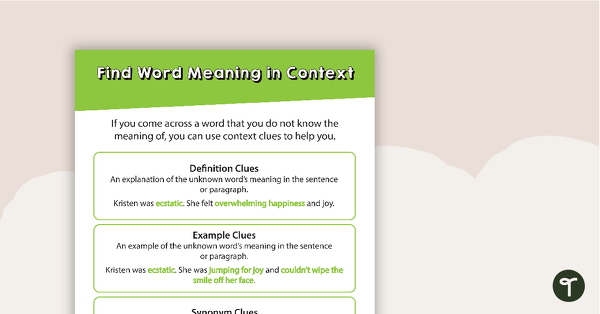
Comprehension Task Cards - Finding Word Meaning In Context
A set of comprehension task cards to help students find word meaning in context when reading.
- Plus Plan
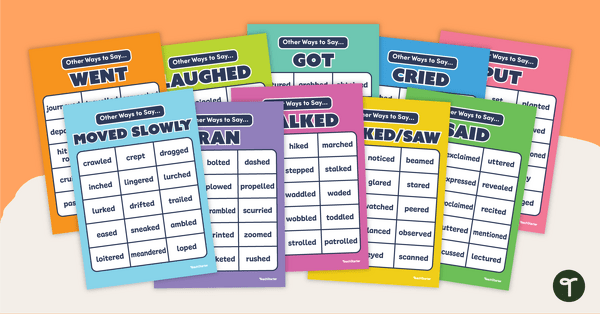
Vivid Verbs Poster Pack
Teach your students to omit boring, overused verbs from their writing with a classroom set of vivid verb posters.
- Plus Plan
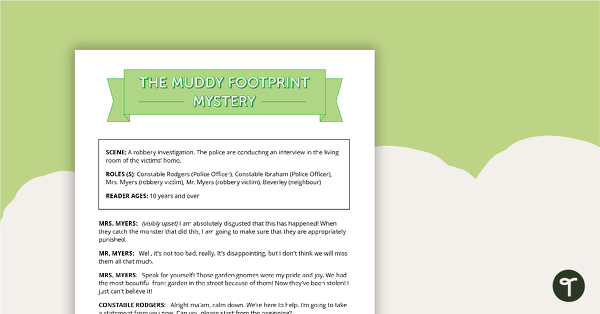
Comprehension - Muddy Footprint Mystery
A fun script and set of questions to help students develop reading and comprehension strategies.
- Plus Plan
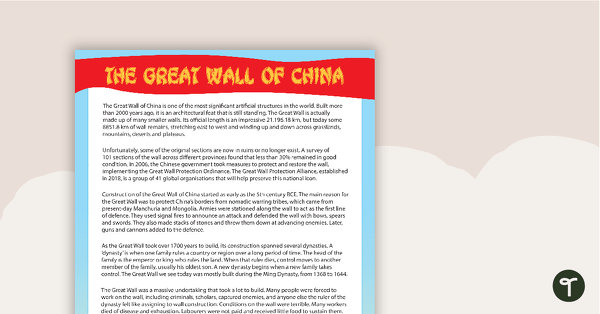
Comprehension - The Great Wall of China
A comprehension activity about The Great Wall of China.
- Plus Plan
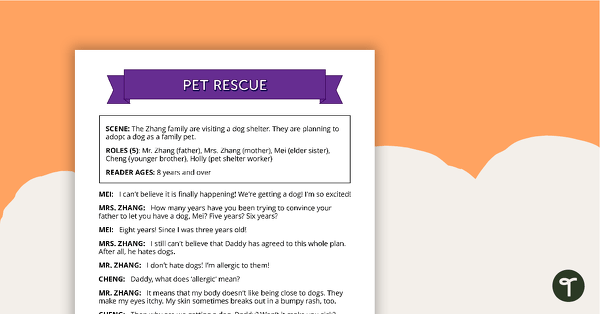
Comprehension - Pet Rescue
A fun script and set of questions to help students develop reading and comprehension strategies.
- Free Plan
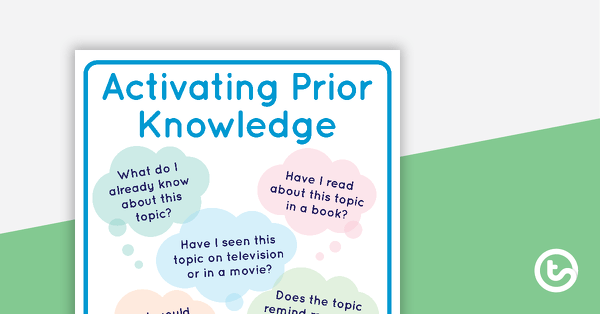
Activating Prior Knowledge - Comprehension Strategy Poster
A poster explaining how to activate prior knowledge before reading.
- Plus Plan
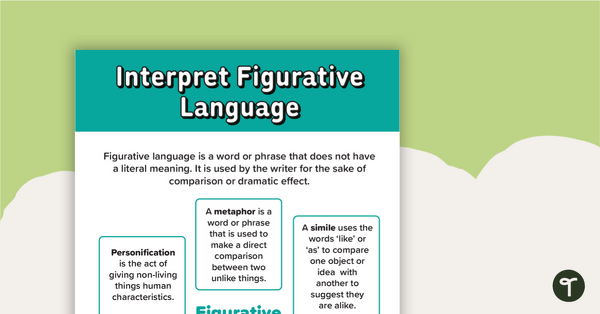
Interpret Figurative Language Poster
Provide students with a visual reminder of the types of figurative language with this classroom display poster.
- Plus Plan
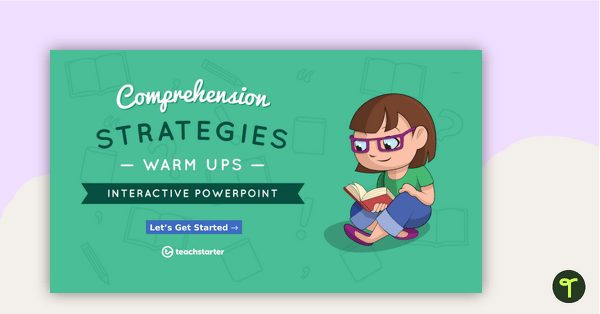
Comprehension Strategies - Interactive PowerPoint
An engaging 48 slide interactive PowerPoint to use in the classroom when developing comprehension strategies.
- Plus Plan
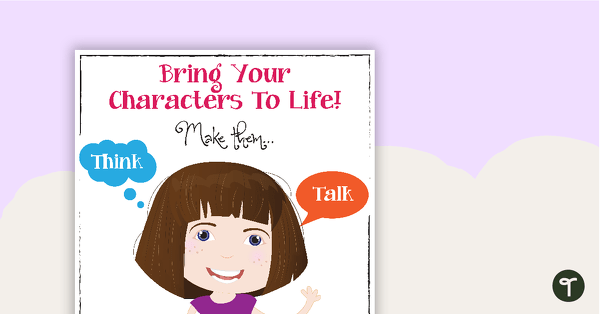
Bring Your Characters To Life Poster
A poster to remind your students to add detail and description to their writing to bring their characters to life.
- Plus Plan
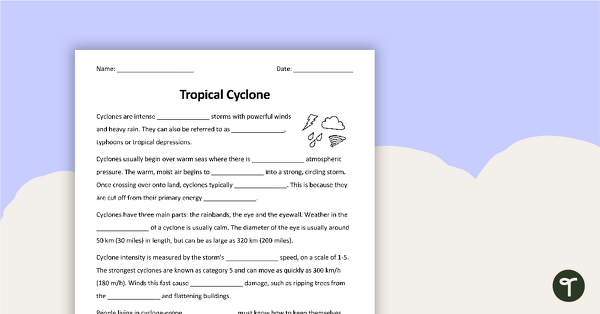
Tropical Cyclone Cloze Worksheet
A cloze worksheet about tropical cyclones.
- Plus Plan
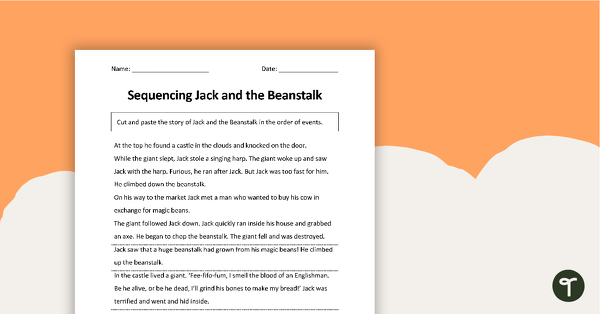
Understanding Sequence - Jack and the Beanstalk
A worksheet to use when teaching students how to understand sequence when reading.
- Plus Plan
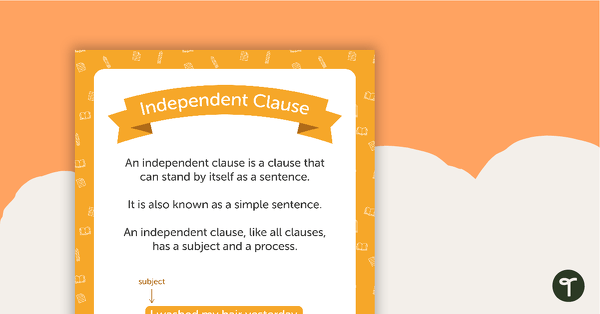
Types of Clauses Posters
A set of five posters examining the structure of independent and dependent clauses.
- Plus Plan
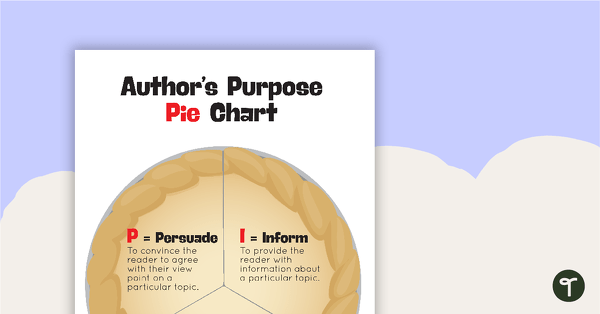
Author's Purpose Pie
A pie that shows the three main reasons an author writes a piece of text.
- Plus Plan
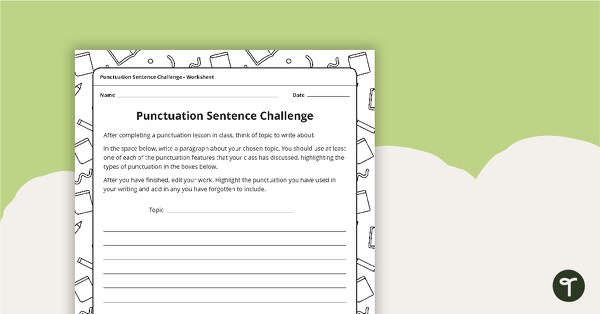
Punctuation Sentence Challenge Worksheet
A teaching resource to help consolidate the students’ knowledge of punctuation.
- Plus Plan
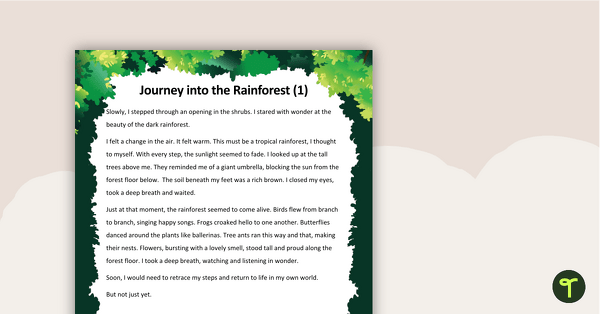
Reading Fluency Assessment Tool - Rainforests
A user-friendly tool for teachers to assess their students' reading fluency and accuracy, with texts based on a rainforest theme.
- Plus Plan
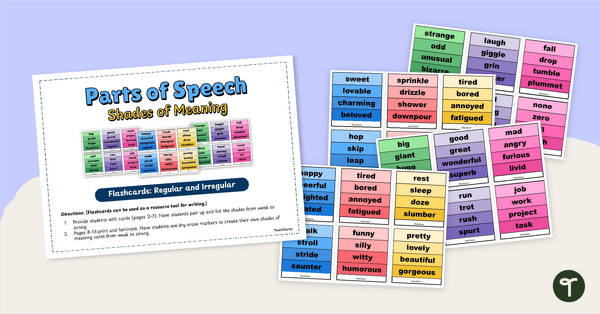
Shades of Meaning Verb Flashcards
Encourage your students to use different shades of meaning in their sentence writing with this set of shades of meaning verb flashcards.
- Plus Plan
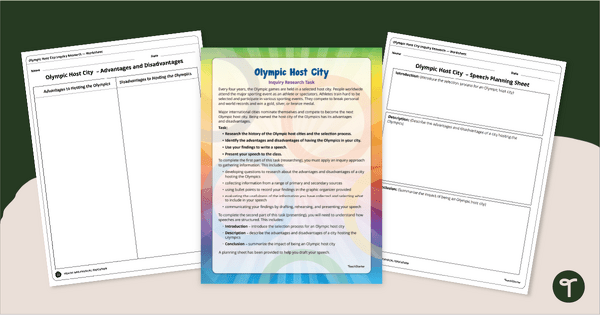
Olympic Host City Project - Speech Writing Task
Explore the advantages and disadvantages of being the host city for the Olympics in this 3-page inquiry and speech-writing task.
- Plus Plan
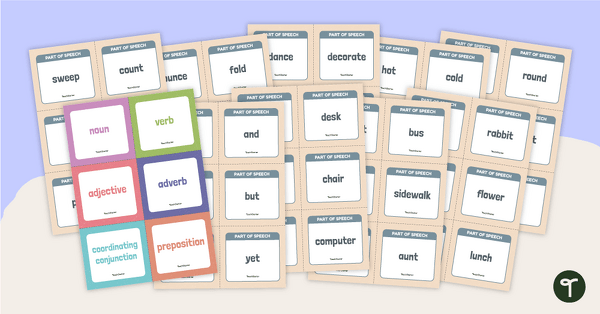
Parts of Speech Word Cards Sorting Activity
Engage your students with this parts of speech group activity where they sort 112 word cards into categories (nouns, verbs, adjectives, adverbs, coordinating conjunctions or prepositions).
- Plus Plan
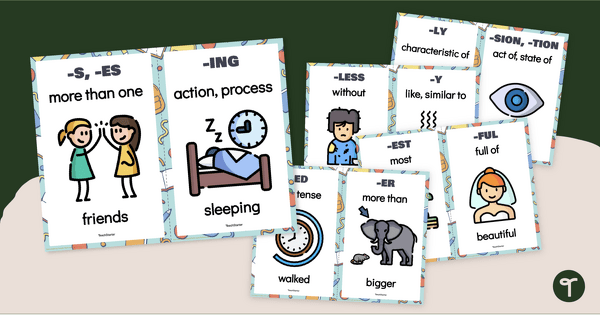
Suffix Mini Anchor Charts
Give your students a visual reminder of the meanings of 28 affixes with a printable set of miniature suffix anchor charts.
- Plus Plan
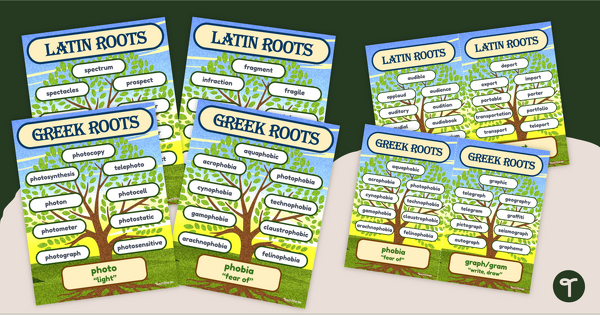
Greek and Latin Roots - Word Tree Anchor Charts
Encourage vocabulary development with 24 Greek and Latin Root Tree anchor charts.
- Plus Plan
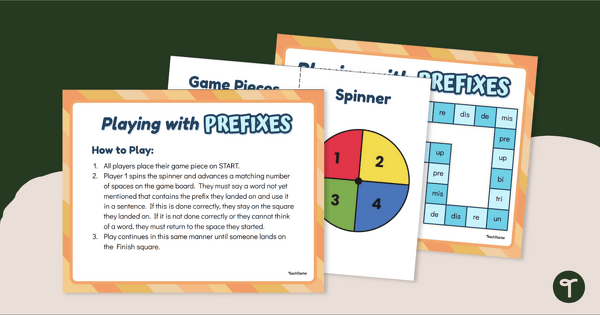
Printable Vocabulary Games - Playing with Prefixes
Practise building and using words with common prefixes with a fun prefix vocabulary game.
- Plus Plan
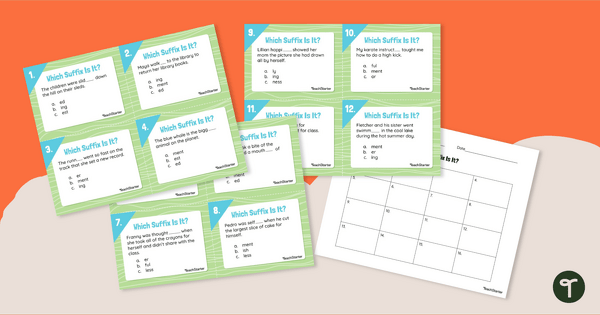
Which Suffix is it? - Task Cards
Practise using suffixes in sentences with a set of printable suffix task cards.
- Plus Plan
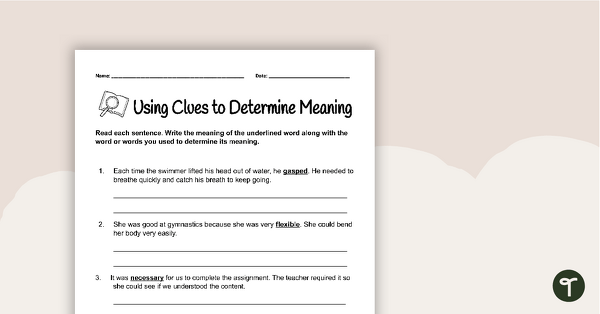
Using Clues to Determine Meaning Worksheet
Practise defining unfamiliar words by looking for context clues within a sentence.
- Plus Plan
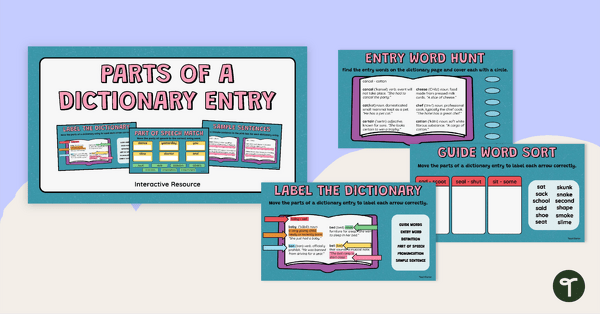
Dictionary Skills Interactive Activity
Practise dictionary skills with this engaging interactive activity.
- Free Plan
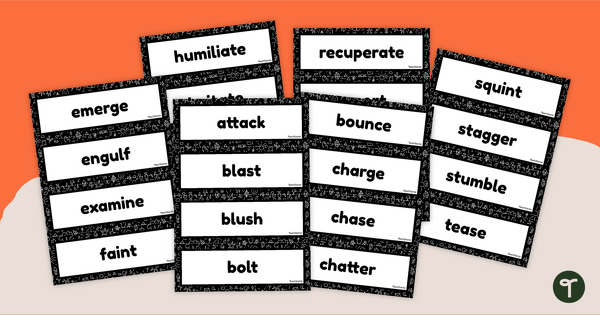
Strong Verbs Word Wall
Print a set of strong verbs word wall cards to help your students boost their writing skills!